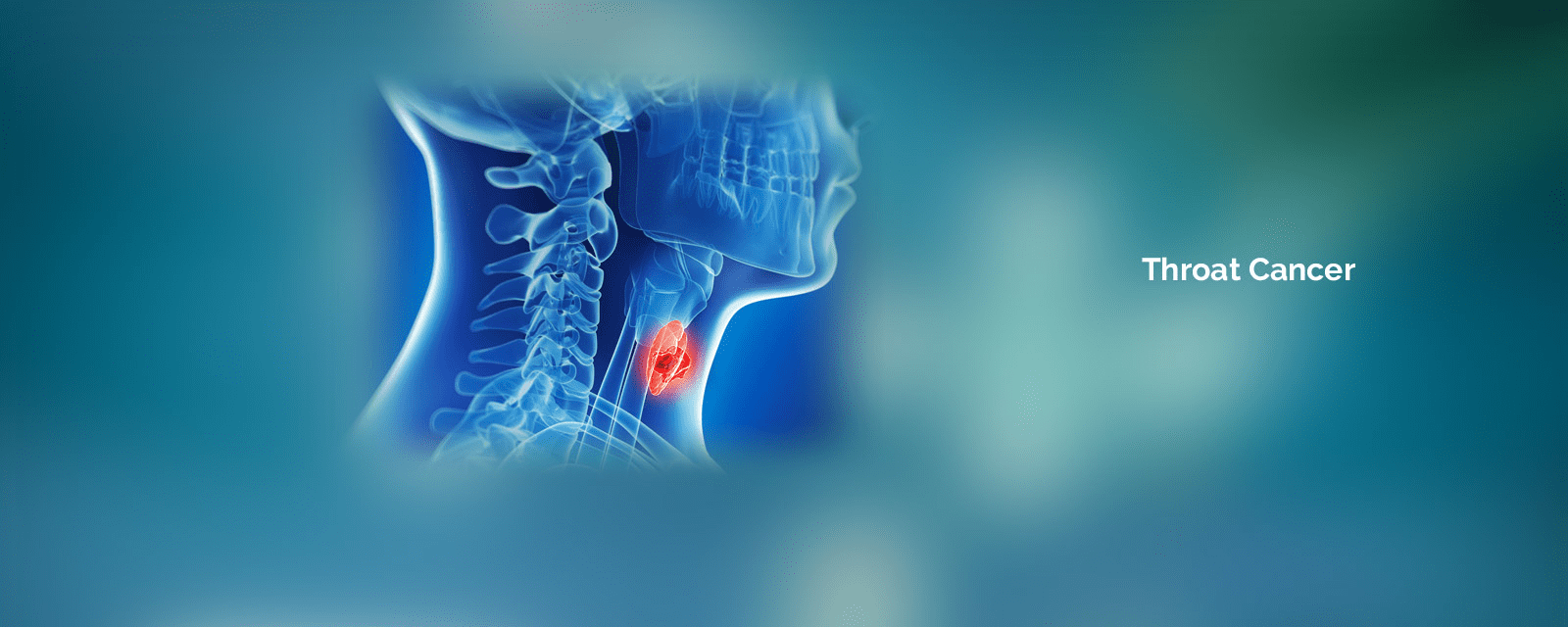Abnormal and uncontrolled multiplication of cells in the body is termed as cancer. These abnormal cells usually form a tumours. Throat cancer is a collective term for cancers that occur in the voice box, the vocal cords, tonsils, oropharynx or other parts of the throat. Throat cancers contributes to 3-6% of all cancers in India. More men than women are affected. It is the seventh most common cancer in India.
Detecting throat cancer is difficult, as symptoms are subtle in early stages. Common symptoms include:
- A change in voice (hoarseness, typically)
- Difficulty swallowing
- Unexplained weight loss
- Sore throat
- Frequent coughing
- Blood in cough
- Swelling in neck (because of swollen lymph nodes)
- Wheezing
- Ear pain
When to see a doctor?
Early diagnosis is of prime importance in preventing or treating cancer. See a doctor if you or loved ones experience any symptoms of this disease. Always trust premier medical institutions like Paras Hospitals group, which have specialized departments for the treatment and care of such conditions.
Causes and Risk Factors
It is uncertain, like most type of cancers, what exactly causes throat cancer, but its occurrence is due to genetic mutations, that cause the cells to start behaving abnormally. A virus called HPV (Human Papillomavirus) is also linked to throat cancers. Risk factors include:
- Smoking
- Excessive alcohol consumption
- Vitamin A deficiency
- Exposure to heavy metals like asbestos and arsenic
- Poor dental hygiene
- A diet lacking in fruits and vegetables
- Gastroesophagal reflux disease (GERD)
Treatment options will be evaluated by the doctor, based on factors such as location and stage of the cancer, the cells involved, overall health of the patient, and their personal preferences. Treatments include:
- Radiation therapy: For early stage cancers, radiation therapy may be enough. But for later stages, it has to be combined with other treatments.
- Surgery: Surgery can be of different types, depending on the location and stage of the cancer. Surface or superficial cancers can be treated surgically using endoscopy. Surgery can also include removing part of or whole of voice box, or other parts of throat. It could also be done to remove cancerous lymph nodes.
- Chemotherapy: Drugs are used to kill cancerous cells in chemotherapy, it is mostly used in accompaniment with radiation therapy.
Treatment of throat cancer often causes side effects and complications that have to be taken care of by specialists, called palliative care. It takes time, depending on the severity of complications and side-effects.



 Call us at
Call us at